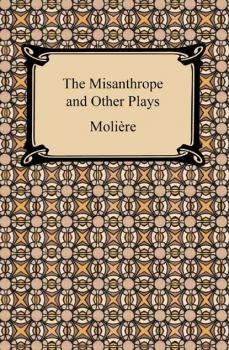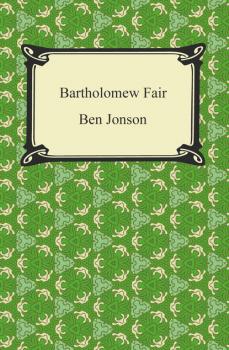Зарубежная драматургия
Различные книги в жанре Зарубежная драматургияPhaedra
The 17th century dramatist Jean Racine was considered, along with Molière and Corneille, as one of the three great playwrights of his era. The quality of Racine's poetry has been described as possibly his most important contribution to French literature and his use of the alexandrine poetic line is one of the best examples of such use noted for its harmony, simplicity and elegance. While critics over the centuries have debated the worth of Jean Racine, at present, he is widely considered a literary genius of revolutionary proportions. In this volume of Racine's plays we find «Phaedra», the tenth of twelve plays by the author. In «Phaedra» Racine returns to Greek mythology for his subject matter. This classic story concerns its titular character who though married to Theseus falls in love with Hippolytus. «Phaedra» was incredibly well received with praise from the likes of Voltaire who described the work as «the masterpiece of the human mind.» The drama remains to this day as one of Racine's most highly regarded works.
A Trick to Catch the Old One
Thomas Middleton (1580-1627), a bricklayer's son, rose to become one of the most eminent playwrights of the Jacobean period. Along with Ben Johnson he helped shape the dynamic course of drama in Renaissance England. His range is broad, as his work successfully covers comedy, tragedy, and history. Praised during his life as well as today, Middleton remains relevant and influential. «A Trick to Catch the Old One» (1608) is a delightful comedy following a young Thomas Witgood who has managed to squander his fortune and is now in debt to his uncle Pecunius Lucre. In order to manage and pay off his debts, an elaborate scheme to court a wealthy mistresses is devised. What ensues is a comedy of intrigue filled with wit and bawdy. In this play greed and seduction intertwine to create a smart comedy with latent social commentary.
The Misanthrope and Other Plays
Written during the highly successful final years of his life, the plays contained in this edition represent the pinnacle of Moliere's artistry and the most profound demonstration of his vision of humanity: «The Misanthrope,» «The Doctor in Spite of Himself,» a hilarious example of Molière's long-standing skepticism of the medical profession, «The Miser,» «The Shopkeeper Turned Gentleman,» «The Impostures of Scapin,» «The Learned Women,» and «The Imaginary Invalid,» the play that Molière appeared in only hours before his death. These works combine all the traditional elements of comedy—wit, slapstick, spectacle and satire, with a certain deep understanding of character that Molière was notorious for. His highly popular work, «The Misanthrope,» satirizes the hypocrisies of aristocratic French society, and paints an accurate picture of the upper-class world in which Molière, looked down upon as a playwright, was ultimately denied membership to.
Bartholomew Fair
Ben Jonson's career began in 1597 when he held a fixed engagement in the «Admiral's Men», and although he was unsuccessful as an actor, his literary talent was apparent and he began writing original plays for the troupe. It is known that Shakespeare's company produced several of Jonson's plays, Shakespeare himself appearing in at least one, («Every Man in His Humour»). «Bartholomew Fair» was written in 1614, during the time considered to be Jonson's heyday (1605-1620), and is one of the playwright's most popular works. The story takes place on St. Bartholomew's day, where in the town of Smithfield an annual fair was held. To Jonson, the fair was a representation of society. In addition to the chaotic fair itself, characters like the justice-seeking Adam Overdo; Bartholomew Cokes, a confident but witless man of means; and the hypocritical Puritan, Zeal-of-the-Land Busy, reflected the madness that the playwright saw in the world.
The Inspector-General (The Government Inspector)
Based upon a personal anecdote recounted to Gogol by the great Russian poet Pushkin, «The Inspector-General», also known as «The Government Inspector», is a satirical play first published in 1836. It is a comedy of errors that unstintingly portrays human greed and stupidity. The plot centers around the officials of a small provincial town in Russia, who have been informed that a dreaded inspector is soon to arrive. They mistakenly assume that the inspector is Khlestakov, an irresponsible, feckless young clerk returning home from St. Petersburg. The servility and bribery displayed by the officials betrays their fear that their misdeeds will be uncovered. This play, with its complete dearth of sympathetic characters, brilliantly constructed plot, and artful language, creates a perfect comic tension that unapologetically reveals the profound corruption of power in Tsarist Russia. First staged amidst strong objection, «The Inspector-General» has become one of the greatest of Russian comedies.
Cyrano De Bergerac
Based on the real life of the seventeenth century French dramatist of the same name, «Cyrano de Bergerac» is the classic romantic play by Edmond Rostand. Cyrano, a cadet in the French Army, is a talented duelist, poet, and musician, however he has extreme self-doubt in matters of love due to the large size of his nose. Cyrano is conflicted by his inability to summon the confidence to tell the woman that he adores, Roxane, how he truly feels. «Cyrano de Bergerac», one of the most popular plays in the French language, brilliantly dramatizes the idea that beauty is only skin deep and that true love is about more than just physical attractiveness. Presented in this volume is the English translation of Gladys Thomas and Mary F. Guillemard.
Peace
The second in a series of three comedies, ‘Peace’, along with ‘The Acharnians’ and ‘Lysistrata’, called for an end to the Peloponnesian war. The 'Peace' was brought out four years after 'The Acharnians' (422 B.C.), when the war had already lasted ten years. The leading motive is the same as in the former play—the intense desire of the less excitable and more moderate-minded citizens for relief from the miseries of war.
The Feast at Solhoug
Henrik Ibsen's «The Feast at Solhoug» is set at the annual feast to celebrate the wedding anniversary of Margit and Bengt Guateson. Knut Gesling, the King's sheriff, comes prior to the feast to ask for Margit's approval for marrying her sister, Signe. Knowing that Knut can be a brutal and violent man, Margit gives her permission on the condition that Knut can demonstrate he can be peaceful for a period of one year. In typical Ibsen fashion, anything but a peaceful outcome ensues. Written in 1855, «The Feast at Solhoug» was Ibsen's first publicly successful play and a classic and tragic drama.
Cynthia's Revels, or, The Fountain of Self-Love
Benjamin Jonson (1572-1637) was a Renaissance dramatist, poet and actor, known best for his satirical plays and lyric poems. Jonson had a knack for absurdity and hypocrisy, a trait that made him immensely popular in the 17th century Renaissance period. However, his reputation diminished somewhat in the Romantic era, when he began to be unfairly compared to Shakespeare. Although Jonson attained a long and thriving career, the majority of his major works for which he is revered were produced between 1605 and 1620. Just prior to this heyday, in 1601 the playwright produced «Cynthia's Revels, or The Fountain of Self-Love,» a sort of stepping stone towards his subsequent masterpieces. The play was part of the so-called Poetomachia, or War of the Theatres, between Jonson and playwrights John Marston and Thomas Dekker. The character Cynthia represented Queen Elizabeth, and the play was marked by violence and controversy in reflection of the queen's final reigning years.
Man and Superman
"Man and Superman" is George Bernard Shaw's response to the request of his fans to write a Don Juan themed play. This four-act drama often preformed without or with an abbreviated version of the lengthy third act can be seen as a simple comedy of manners or, as Shaw had intended, something quite more, an exposition of Nietzsche's philosophical ideas of the «Superman.» «Man and Superman» is considered to be one of Shaw's greatest works, a masterpiece of dramatic literature.









